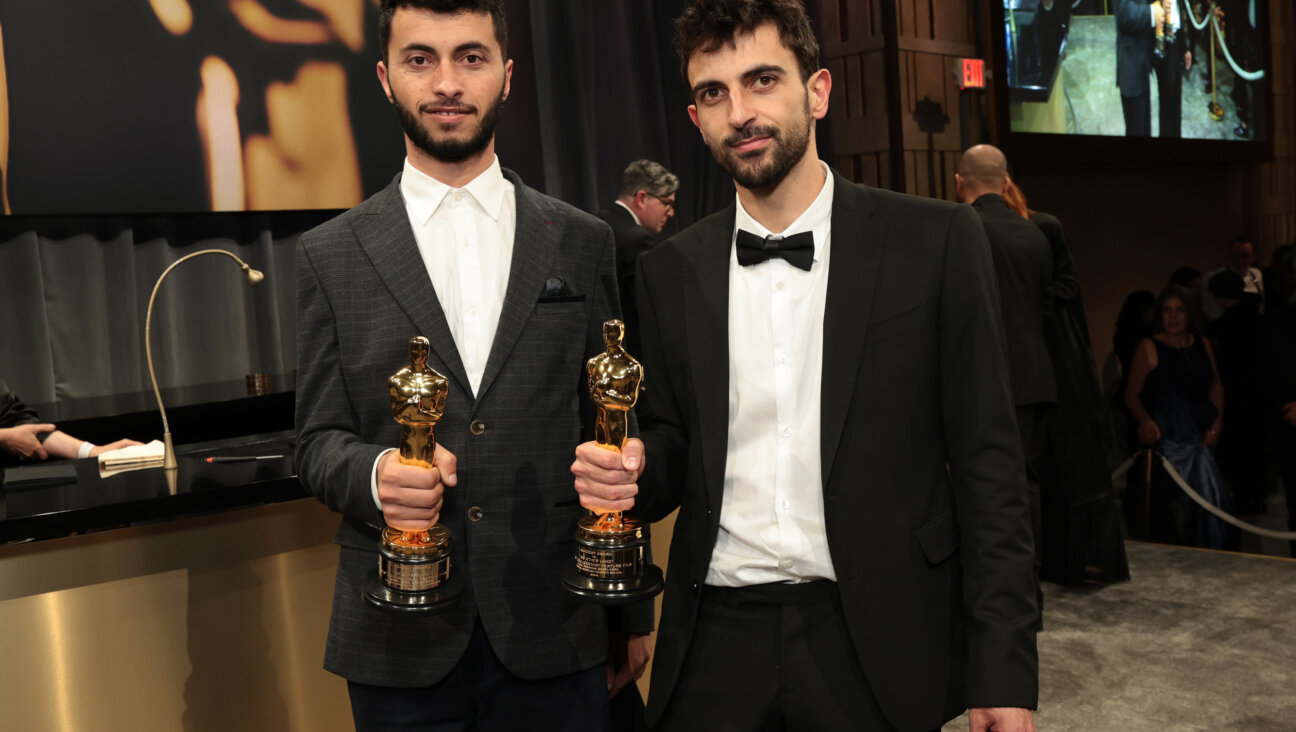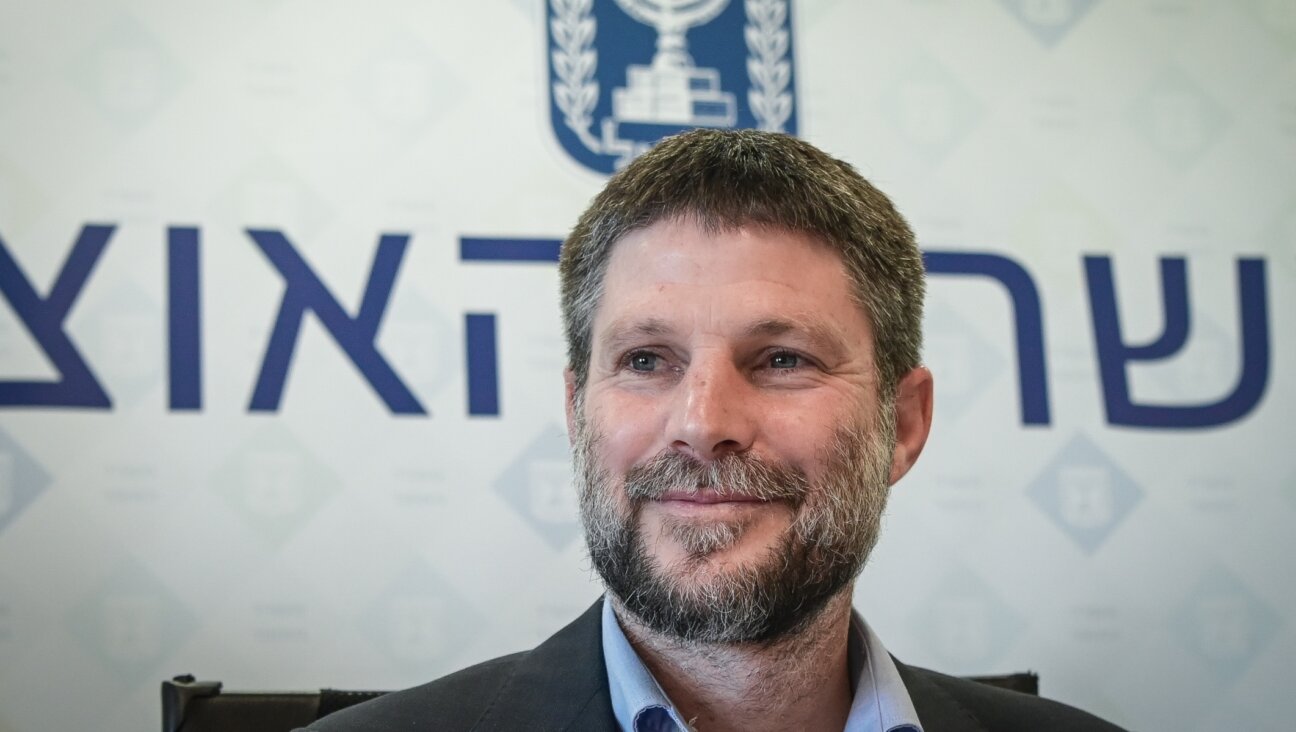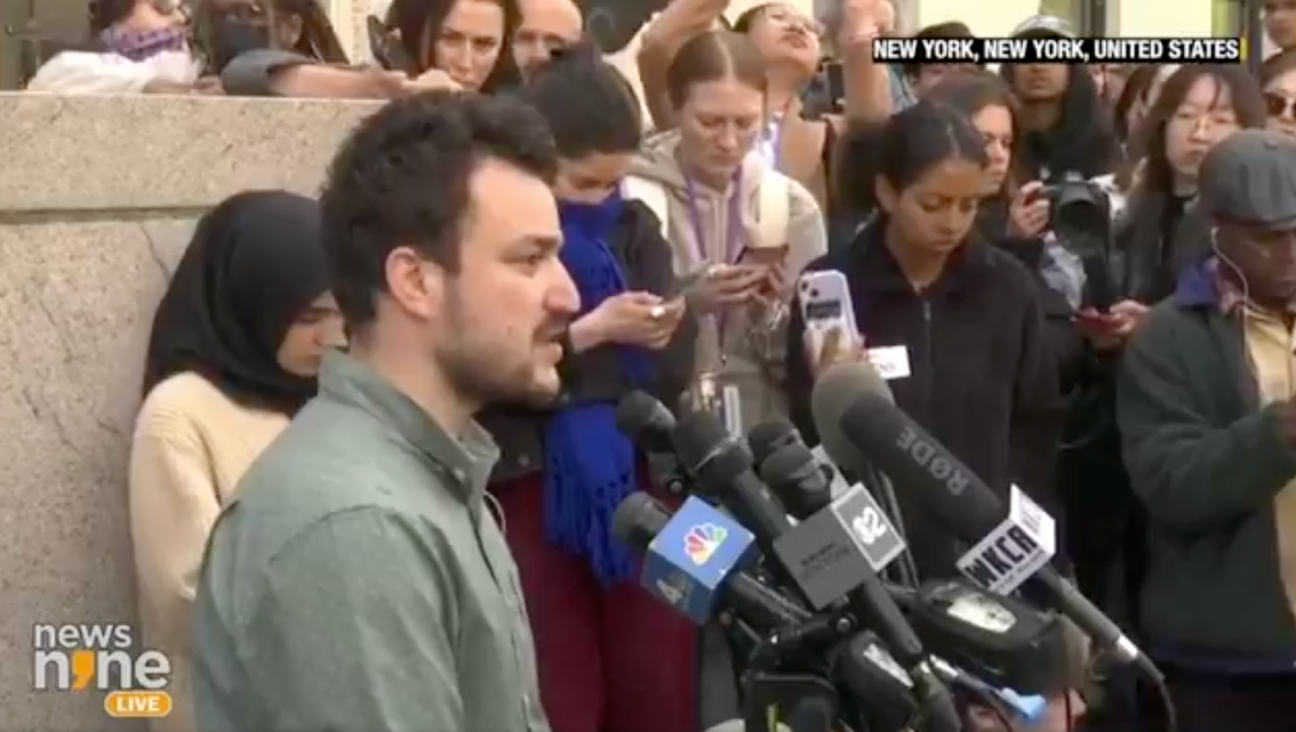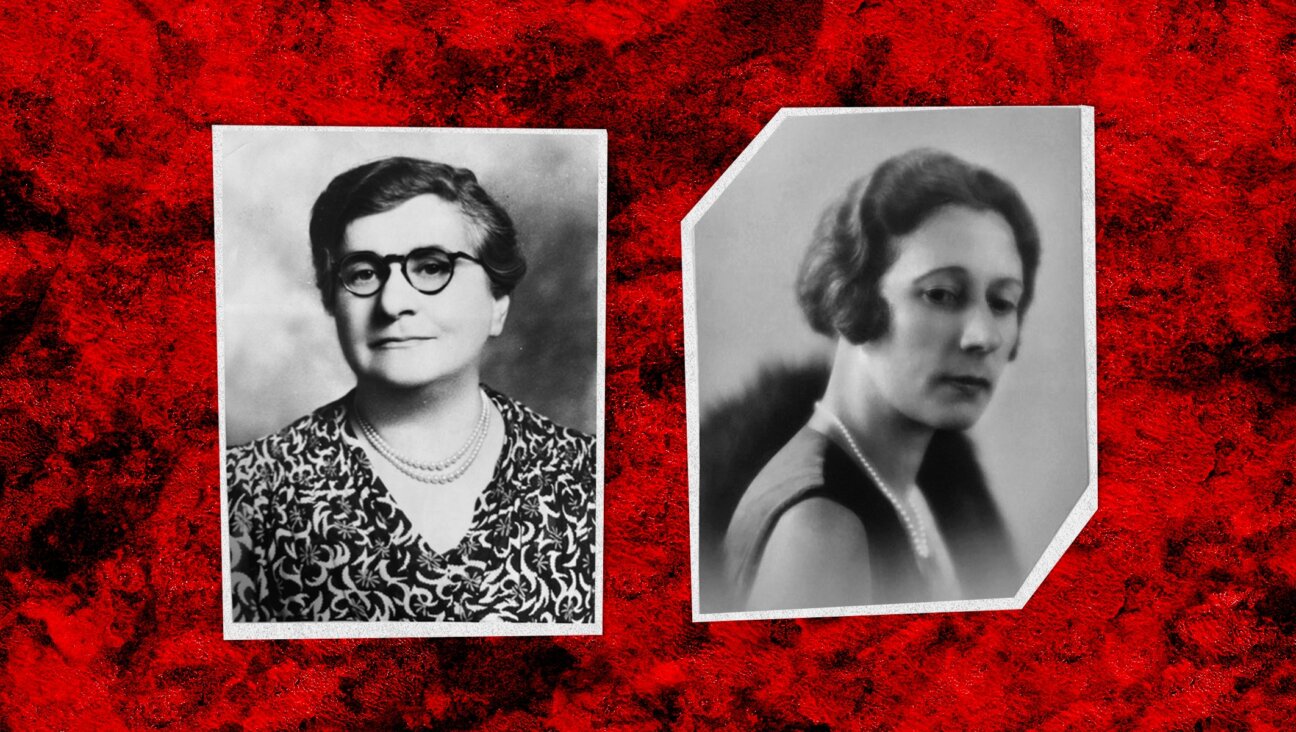Mem Bernstein
MEM BERNSTEIN
In 2002, Bernstein made our list as one of the most dynamic, if most media-shy, Jewish “venture philanthropists.” As a string of recent successes attest, her influence has only grown in the past three years. Bernstein oversees not one but two major foundations. Both were started with the money of her late husband, investment whiz Sanford “Zalman” Bernstein: the Avi Chai Foundation, a major player in Jewish education, and the newer Keren Keshet-The Rainbow Foundation, said to reflect Mem Bernstein’s personal Jewish vision. Keren Keshet initiatives include a new Jewish high school in San Francisco and a program on constitutional government at Tel Aviv University. But its signature project is Nextbook, which promotes Jewish literature, culture and ideas through public programs and an acclaimed Web site. This year Nextbook launched its most ambitious project, the Jewish Encounters books series, which wittily matches boldface writers with Jewish topics. It debuted with works by Poet Laureate Robert Pinsky, writing on King David, and Harvard medical professor Sherwin Nuland on Maimonides. Future offerings include Rebecca Goldstein on Spinoza, Douglas Century on boxer Barney Ross and Ben Katchor on the dairy restaurant.
STEVEN NASATIR BARRY SHRAGE
Jewish philanthropic federations were largely absent from the major communal debates of the year as their national system continued struggling to stay relevant in a time of donor individualism. Amid the uncertainty, the successful federation heads in Boston and Chicago have come to represent the two approaches that are vying for the future of their national charitable network, which raises about $2 billion each year. Nasatir, the president of the Jewish Federation of Metropolitan Chicago for a quarter-century, is a standout in the old school of hard-nosed fund raisers. He runs the country’s second-richest federation campaign — though his city has the third-biggest Jewish population, half the size of number-two Los Angeles — and he regularly pushes federations nationwide to stay focused on the nuts and bolts of their mission, including Israeli needs and social-service delivery. Shrage, president of Combined Jewish Philanthropies of Greater Boston, has been pushing his federation and others to find innovative answers to big questions about religious identity and the Jewish future. He has made some inroads outside Boston — his acclaimed adult Jewish literacy program, Me’ah, is now being reproduced in other cities — but most leaders of federations and their national organization, United Jewish Communities, seem to be taking their cues from Nasatir. Still, the debate is not over, and ultimately it will shape the way hundreds of millions of communal dollars are spent each year.
JENNIE ROSENN
Rabbi Jennie Rosenn, 36, is among the cadre of Jewish spiritual and communal leaders who are leading the way in developing a new generation of Jewish liberal activists. A former associate Jewish chaplain at Columbia University and Barnard College, she was appointed this year to be program director for Jewish life and values at one of the world’s wealthiest Jewish family foundations, the Nathan Cummings Foundation. She’s expected to shift the foundation’s emphasis away from the heavily spiritual focus of her predecessor, Rabbi Rachel Cowan, and move it toward greater involvement in political and social activism. She’s got a strong track record in the field: While at Columbia, she founded the Columbia/Barnard Tzedek Hillel, a center for community service and advocacy work. The center offers spring-break volunteer opportunities and internships with nonprofits. A Reform rabbi and an alumna of the Wexner Graduate Fellowship Program, Rosenn is also a founding board member of Avodah: The Jewish Service Corps, which recruits cohorts of 20-somethings to live and learn together while working to fight urban poverty (and is run by her husband, Rabbi David Rosenn).
LYNN SCHUSTERMAN
In the five years since the death of her oilman husband, Charles, Lynn Schusterman has emerged as one of the nation’s savviest and most generous funders of Jewish education. Her Charles and Lynn Schusterman Family Foundation gives away close to $10 million a year — most of it to Jewish causes, the rest to culture and welfare in her hometown of Tulsa, Okla. She’s a major supporter of Reform Judaism, particularly its overseas outreach efforts; she gives huge gifts to Jewish day schools and synagogue renewal, and she’s passionate about programs for girls. For all that, her true passion is reaching Jewish teenagers, reflected in the two organizations that get the biggest chunk of her attention and largess each year: Birthright Israel, which she helped found, and Hillel, which named its international headquarters after the Schustermans. But what makes Schusterman’s philanthropy unique is the way she gives. Every gift has her personal stamp, reflecting her own commitments and beliefs. And yet, in contrast to her fellow mega-donors, she doesn’t presume to be an expert and set up a new organization every time she has a new idea. Her philanthropy is a throwback to an earlier era, when giving was a respectful partnership between donor and professional.
LESLIE WEXNER
If the world of Jewish philanthropy seems ever more dominated by a handful of “mega-donors” who run their own projects instead of funding those of others, much of the blame — or credit — belongs to Leslie Wexner. The Ohio retailing mogul, founder and CEO of the Limited Brands Corp. — which includes such chains as The Limited and Victoria’s Secret — began his philanthropic journey with the founding in 1984 of The Wexner Foundation, which funds and operates a network of big-ticket educational programs. One, the Wexner Graduate Fellowship Program, offers scholarships and mentoring to graduate students preparing for careers in Jewish service. Another, the Wexner-Israel Fellowship Program, brings midcareer Israeli public officials for a yearlong master’s program at Harvard’s Kennedy School. Perhaps the best known, the Wexner Heritage Foundation, offers a free two-year course of weekly Jewish study to under-40s tagged as future lay leaders. Other mega-donors, including Michael Steinhardt and brothers Charles and Edgar Bronfman, have followed in Wexner’s footsteps and created a host of their own programs, including Birthright Israel and the Bronfman Youth Fellowships. But Wexner, 68, keeps leading the pack; this year he launched a new initiative with Detroit philanthropists William and Karen Davidson to expand the graduate fellowship to at least 20 scholars per year through the creation of 10 Davidson Scholarships for students preparing for careers in Jewish education and leadership.
CULTURE
JESSICA COEN AND JESSE OXFELD
Gawker.com may describe itself officially as “the source for daily Manhattan media news and gossip,” but read deeper and you’ll quickly figure out that Jews, media and sex — which the Web site’s editors call “the Holy Trinity of our existence” — is a more accurate list of its preoccupations. One of the cheekiest and most popular of the Web logs that are coming to dominate the new media, Gawker officially bills itself as merely a clearinghouse for gossip. But it has morphed from an addicts’ indulgence into a pluckily legitimate voice in media criticism — and a serious scoop machine. Not to mention one with a distinctly Yiddish accent. Currently run by co-editors Jessica Coen, 25, and Jesse Oxfeld, 29, the site courses with Jewish flavor, ridiculing old canards about Jews and the media even as it relishes them. “Next week’s New York [magazine] wonders whether, as a recent scientific study purported to prove, Jews really are smarter,” an entry right after Yom Kippur stated. “All we’ll say: We had a day off yesterday, and we ate pounds of excellent lox for dinner. You goyim did not. QED.” Another time, the editors said “yisgadal v’yiskadash” over a Conde Nast employee’s firing. But while Oxfeld and Coen never would admit it, their Jewishness is more than just latkes and Manischewitz. Witness their recent skewering of the Friends of the Jerusalem College of Technology, which was auctioning off a lunch with conservative News Corp. mogul Rupert Murdoch — for a rumored reserve price of $50,000. “It’s pricey, yes. But think how much fun it will be to discuss JCT with Murdoch, and to share in his passion for those well-known Jewish traditions, like social responsibility and reasoned debate and progressive ideals.”
CAROLYN HESSEL
In a year that saw new books by nearly all the boldface names of Jewish literature — Philip Roth, Cynthia Ozick, Francine Prose and even relative newcomers like Jonathan Safran Foer and Nicole Krauss — one might assume that the publishing houses have our particular brand of prose taken care of. But Carolyn Hessel, executive director of the Jewish Book Council, remains one of the most powerful arbiters of Jewish literature in the United States. The council coordinates some 70 Jewish book fairs at community centers nationwide and oversees the National Jewish Book Awards. Insiders said Hessel could make or break a book by deciding which writers to recommend for appearances at key fairs. Certainly the buzz of a JCC tour can play a big role in jumpstarting an author’s career, as recent beneficiaries Nathan Englander and Foer might attest. Hessel, who previously served at the Jewish Education Service of North America, is resolute in her mission, even if her influence occasionally lands her in controversy. “My goal is to promote the reading, writing and understanding of books of Jewish interest,” she told the Forward last year. “And I define ‘Jewish interest’ in the broadest terms.”
A message from our Publisher & CEO Rachel Fishman Feddersen

I hope you appreciated this article. Before you go, I’d like to ask you to please support the Forward’s award-winning, nonprofit journalism so that we can be prepared for whatever news 2025 brings.
At a time when other newsrooms are closing or cutting back, the Forward has removed its paywall and invested additional resources to report on the ground from Israel and around the U.S. on the impact of the war, rising antisemitism and polarized discourse.
Readers like you make it all possible. Support our work by becoming a Forward Member and connect with our journalism and your community.
— Rachel Fishman Feddersen, Publisher and CEO



























